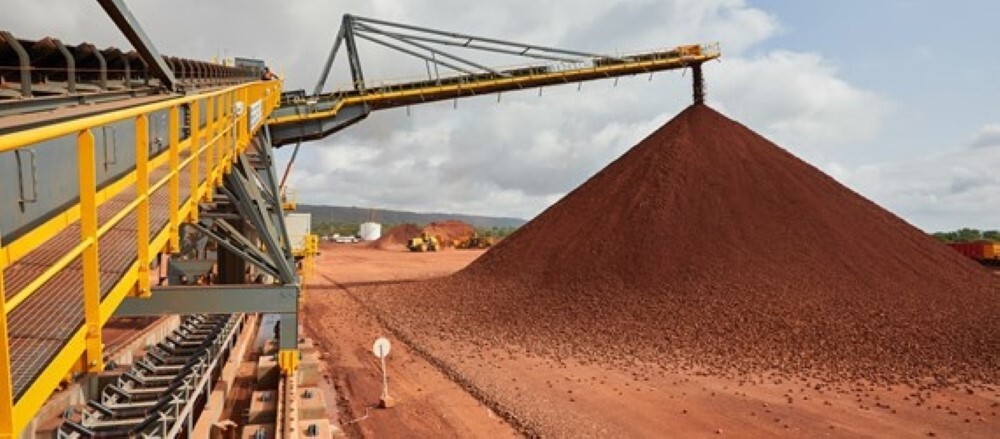您想继续阅读英文文章还
是切换到中文?
是切换到中文?

THINK ALUMINIUM THINK AL CIRCLE

In a significant move impacting the global bauxite supply landscape, Emirates Global Aluminium (EGA), a leader in global aluminium production, has confirmed the complete cessation of its bauxite mining activities in Guinea, following the government's expropriation of its mining assets. The firm's Guinea Alumina unit will wind down its bauxite mining operations, along with associated employee and on-site service contracts, in the Republic of Guinea.

Tracing back to May 2025, the Republic of Guinea has initiated proceedings to revoke EGA's mining license for the Guinea Alumina Corporation (GAC). This move follows a suspension of GAC's bauxite exports in October 2024 over customs duties concerns. It further includes the discussion upon finalisation, the revocation could significantly impact global bauxite supply, as GAC was one of Guinea's largest producers, exporting approximately 14 million tonnes in 2022. EGA has expressed its commitment to resolving the dispute and resuming operations.
The Abu Dhabi-based aluminium producer stated on August 22 that the decision comes after the Guinean government's "illegal" takeover of its mine. EGA noted that, effective August 23, the government will assume complete control of the mine's operations, equipment and infrastructure.
As of August 6, 2025, Guinea revoked EGA's bauxite concession held by its subsidiary, GAC, citing non-compliance with national mining regulations. The 690 km² concession, estimated to contain 400 million tonnes of bauxite reserves, has been reassigned to the state-backed Nimba Mining SA without compensation. EGA has condemned the decision as a breach of contractual rights and is pursuing legal action. This move underscores Guinea's strategic shift towards greater domestic control over its mineral resources.
EGA strategically diversified its operations to mitigate upstream supply chain uncertainties, particularly following the revocation of its bauxite mining concession in Guinea. On May 16, EGA signed a Memorandum of Understanding (MoU) with the UAE's Tawazun Council and the US-based RTX to extract and refine gallium at its Al Taweelah alumina refinery in Abu Dhabi.
This initiative aims to position the UAE as the second-largest global producer of gallium, a critical metal for semiconductors and defence applications. Additionally, EGA has partnered with China's Sunstone to establish a 300,000 tonnes per annum anode manufacturing facility in Abu Dhabi, enhancing local production capabilities and reducing reliance on imports. These moves underscored EGA's commitment to strengthening its position in both commercial aluminium and strategic minerals sectors.
Following the revocation of its bauxite mining concession in Guinea, EGA explored new opportunities in Ghana. In June 2025, EGA signed a MoU with the Ghana Integrated Aluminium Development Corporation (GIADEC) to assess the feasibility of bauxite exploration in Ghana's estimated 920 million tonnes of reserves. The agreement includes potential long-term offtake agreements and collaboration on rail and port infrastructure to support expanded production. EGA aims to diversify its upstream supply sources and is considering multiple opportunities worldwide as it plans to double its bauxite production in the coming years.
As of today, following the loss of its Guinea operations, EGA will face critical strategic challenges in securing bauxite supplies essential for its aluminium production. The company must now identify alternative sources of raw materials while reassessing its global supply chain strategy to ensure continuity and resilience.
The financial ramifications could be significant, as EGA is likely to incur write-downs on its Guinea investments while simultaneously allocating capital to reconfigure its supply chain. Adjustments to overall production capacity and strategic positioning within the aluminium market may also be required.
In response to these developments, EGA has several strategic avenues to consider. The company can secure alternative bauxite supplies from other major global producers, including Australia, Brazil and Jamaica, while exploring potential legal recourse through international arbitration to seek compensation for the Guinea setback.
Reassessing its vertical integration strategy in light of heightened supply chain risks and strengthening operations in jurisdictions with more stable regulatory frameworks will be key priorities. The speed and effectiveness with which EGA pivots to alternative sources will be critical to maintaining its competitive standing in the global aluminium market.
The operational and financial impacts of the Guinea exit are multifaceted. EGA faces potential write-downs of substantial investments, costs associated with securing new supply channels, and possible production adjustments at facilities dependent on Guinean bauxite.
Additionally, investor confidence and future expansion plans may be affected. How efficiently the company navigates these challenges will play a decisive role in shaping its competitive positioning in the aluminium industry in the coming years.
Responses








